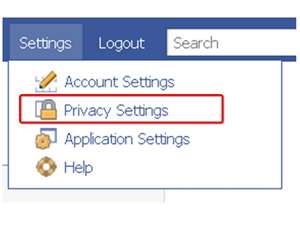On the surface this post is about how privacy has changed throughout history with advancing technology but the subtext is our privacy and how the state’s right to protect us is going to be clash in an ever increasing fashion. How we manage that is important to the future of the United States.
How Privacy has Changed
Now, on to the topic at hand, how privacy has changed both legally and in our expectations over the years. One of the first opinions about privacy written in the U.S. was The Right to Privacy by Samuel Warren and future Supreme Court justice Louis Brandies. In this article they point out that privacy was extended over the years to include things like vibration and dust as the world changed.
Privacy certainly factors into zoning laws as we would not want a factory to move to the middle of a residential region. These things make perfect sense to us today but when there was no such thing as a factory they did not merit consideration.
Privacy Rights
The main thrust of the paper was the intrusions that photography and newspapers presented warranted a new interpretation of privacy laws. I’d suggest a full perusal of the article because it is beautifully argued and astonishingly pertinent to today’s world even if the technologies discussed are outdated. It is fairly lengthy and you might want to skip down to the six enumerated privacy rights points.
Basically, people have the right to their personal lives and other people cannot splash that across the media without permission. Public figures fall under a different set of rules. That being said, personally I find the invasion of privacy of celebrities and politicians to be disgusting. The courts have ruled it legal enough.
Modern Technology
Now, as to today’s technology and what it means for our privacy. The use of secure “land-line” phones is slowly going away and cellular phones broadcast over the open airwaves. This means anyone can technically listen in on your conversations if they have certain information and equipment. We increasingly use encrypted wireless devices . This does not prevent the possibility of someone is eavesdropping on those conversations.
Every email you send does not go directly to the recipient. It passes through numerous other computers on the way to that person. Anyone with access to said computers can read your email.
Most of our purchases are made with credit or debit cards which are tied directly to our person. This means that information about our shopping habits is readily available to sellers. Every page we browse on the internet is tracked and you can’t eliminate this by stopping tracking cookies on your computer. There is a record of your computer visiting a particular site at all times.
We will increasingly consume media through streaming venues which again is information available for capture.
What does it Mean
What does all this mean? It means that things we once considered private are now publicly available for consumption. My shopping habits, movie watching habits, reading habits, music listening habits, and other things are now public knowledge.
Most importantly what rights does this give the state and their law enforcement arms to access such information. There have been a bevy of cases testing the limits of this in recent years. Technology called Forward Looking Infrared allows police to see if we are using certain kinds lights in our house. The Supreme Court ruled this an invasion of our Fourth Amendment rights.
We will see a huge increase of drones patrolling our skies in the future as well as more cameras in many public places to watch for criminal activity. All of these things have both their good and bad sides. How they are used and the laws associated with their use will greatly effect our privacy in the coming years.
This is an incredibly important issue in the United States today because it pits our privacy and, to a large degree, freedom against the state’s duty to protect us from criminal mischief. That’s what I’m going to write about on Sunday. What right does that state have to invade our privacy in order to protect us? Stay tuned!
I’ve got a special article on tap for Saturday but I’ll let you know about that later on today!
As always, comment, tweet, stumble, digg, like, link, and otherwise share if you think others might be interested!
Tom Liberman

Pingback: Privacy in the Modern World – Conclusions « tomliberman
Pingback: The Quantum Computer Future - Tom Liberman